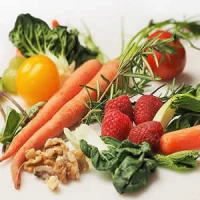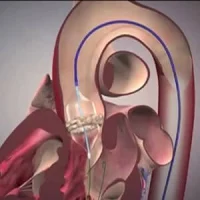According to new research published in BMJ Open, England might see thousands of extra deaths from heart disease and stroke over the next decade if Britain presses ahead with Brexit on March 29.
The researchers believe that the costs of fruits and vegetables will rise significantly because the UK is heavily dependent on fruit and vegetable imports (84% and 48% respectively in 2017). As it moves ahead with Brexit, fruit and vegetable intake is likely to drop in England which could generate around 12,400 extra cardiovascular deaths over the next decade.
While there has been a great deal of discussion on the economic impact of the impending exit of UK from the European Union (EU), very little has been said about its potential impact on health.
For this study, the researchers used the IMPACT food policy model which combines a wide range of dietary intake as well as economic and health data to investigate the potential impact of four different types of Brexit. These four scenarios include:
- A free trade agreement with the EU and half of the countries outside Europe that have trade deals with the EU.
- A free trade agreement with the EU only.
- A no-deal Brexit with no preferential arrangements with any country and adherence to World Trade Organization (WTO) rules.
- A liberalised trade regime where the UK trades under WTO rules but has no tariffs imposed on fruit and vegetable imports.
All scenarios assumed an increase in trade tariffs and added costs for additional border checks which the UK will have to pay on imported goods after Brexit. Based on the analysis, the researchers found that a no-deal Brexit would lead to the greatest price hikes. Prices for bananas could rise by nearly 17%; a similar increase of 14% could be seen for citrus fruits and almost 15% for tomatoes.
This will not be good for the health of the UK population. Already, fruit and vegetable intake is below the recommended levels in the UK. If Brexit goes through, these intake levels could decline even further. A no-deal Brexit would be associated with the greatest projected drop: 11.4% for fruit and over 9% for vegetables.
Deaths from heart disease and stroke are projected to increase for every Brexit scenario that was modelled in this analysis. However, a no-deal scenario would be most harmful. Even a potential increase of 2% in home-grown fruit and vegetable production cannot counter or balance out the cost of imports, subsequent decline in fruit and vegetable consumption and projected deaths.
There are likely to be other ramifications of Brexit for food production and consumption. At present, around 80,000 seasonal workers from EU countries harvest home-grown produce. But once free movement becomes restricted in the Brexit world, the availability of fresh home-grown produce will reduce, and prices will increase. Food quality and safety may also be affected if regulations are relaxed to boost competitiveness.
"Post-Brexit trade policy could increase price and decrease intake of fruit and vegetables, thus increasing [cardiovascular disease] mortality in England. The UK government should therefore carefully consider the population health implications of Brexit during upcoming negotiations and post-Brexit planning, particularly adverse changes to food systems," the researchers conclude.
References:
Seferidi et al. (2019) Impacts of Brexit on fruit and vegetable intake and cardiovascular disease in England: a modelling study. BMJ. doi.org/10.1136/bmjopen-2018-026966
Latest Articles
Stroke, heart disease, Brexit
According to research published in BMJ, thousands of extra deaths could occur from heart disease and stroke over the next decade if Britain presses ahead with Brexit on March 29.










